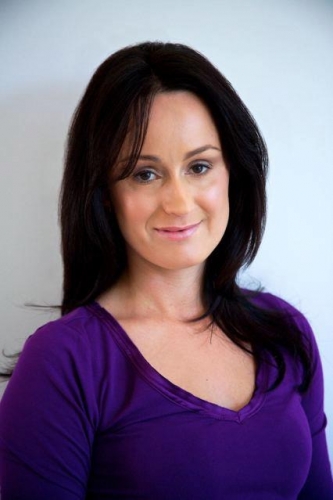A future where those affected by dementia will be accepted, understood and supported to engage in their passions, including a love of travel, is becoming a reality with initiatives underway to create dementia-friendly communities, transport and travel destinations.
The Australian Government’s Department of Health has identified the need to develop a dementia-friendly action plan in the
National Framework for Action on Dementia 2015–2019 to build awareness, acceptance and understanding of dementia in the community.
Subscribe for FREE to the HealthTimes magazine
The Australian Government also committed an additional $200 million for dementia research which has significantly boosted funding to more than $60 million per annum.
Dementia Australia’s ‘Become a Dementia Friend’ campaign is also helping to educate the public and help support people with dementia to remain included, accepted and connected with their community.
These dementia initiatives are echoed internationally with the World Health Organization's commitment to age-friendly cities and implementation of dementia-friendly design principles worldwide.
Considering approximately 250 people a day receive a diagnosis of dementia in Australia,
a figure set to increase to 318 people per day by 2025 and more than 650 people by 2056, dementia initiatives and research are pertinent.
Dementia-friendly transport and travel destinations
Senior Occupational Therapy Lecturer at CQUniversity, Dr Maria O’Reilly, created a guide to improve air travel for people with dementia in collaboration with Queensland University of Technology. As a result of this work, Brisbane Airport became Australia’s first dementia-friendly airport.
“We surveyed travellers with dementia and their care partners, as well as airport and airline staff asking them about issues faced by travellers with dementia.
“This initial survey identified the airport as the most challenging part of the journey, so we worked with Brisbane Airport to look at how they could become more accessible to travellers with dementia, said Dr O’Reilly.”
Alzheimer’s Australia CEO Maree McCabe said the Australian-first was a significant step forward in making Australia more dementia-friendly.
“People living with a diagnosis of dementia can still enjoy travel, but may require some extra assistance to do so,” said Ms McCabe.
Dr O’Reilly now has her sights set on turning Bundaberg into a dementia-friendly tourist destination with her current project, Adventures with dementia: How dementia inclusive is Bundaberg as a tourist destination?
The project will evaluate Bundaberg’s airport and railway station, as well as taxi and coach travel in the area to determine its accessibility for travellers with dementia.
“As part of this process we are surveying transport workers, have conducted site audits of the airport and railway station, and plan to speak to local people living with dementia.
“I’d like to see this initiative expanded to other travel destinations,” said Dr O’Reilly.
What makes a destination ‘dementia-friendly’?
If a destination is to be considered dementia friendly, the physical and social environment must support people living with dementia to navigate their surroundings and interact with others, said Dr O’Reilly.
The physical environment must include:
-
Way-finding cues and signage
-
Quiet places to sit and decompress
-
Accessible unisex toilets (with clear signage, and contrasting toilet seats)
-
Floor and ground surfaces that aren’t highly patterned, overly glossy, or uneven
-
Internal environments that are calm to minimise sensory overload (not too cluttered or noisy)
The social environment relates to community awareness and responsiveness, staff training, and organisational protocols, said Dr O’Reilly.
“If people are alert to and responsive to the difficulties experienced by people with dementia, it can make a big difference to the experience of a traveller with dementia.
“At the airport, we also developed the guide to empower and educate travellers with dementia and their travel companions. This piece of the puzzle is also important.
“We now know that people with dementia can and do continue to live engaged lives long after receiving their diagnosis.
“We also know that more older people are travelling, including people living with dementia, but until recently there’s been very little information available for them on how to travel well.
“This project should benefit people with dementia and their care partners, by enabling more positive travel experiences.
“It will also benefit transport services and their staff by minimising delays and difficulties with passengers.
Dr O’Reilly said the current project would also benefit Bundaberg by promoting it as a dementia-inclusive destination, thus attracting more travellers with dementia.
“I think Bundaberg has great potential to be established as a “dementia friendly” tourist destination.
“We have received enthusiastic responses from the Bundaberg community and Bunda-berg Regional Council since the project’s inception.”
“It all comes down to education and awareness; we all need to take a little more time when interacting with others, and be patient if they are a bit unsure or confused,” said Dr O’Reilly.
Dementia in Australia
Dementia incorporates a large group of illnesses which cause a progressive decline in a person’s functioning, including loss of memory, intellect, rationality, social skills and physical functioning.
There are many
types of dementia including Alzheimer’s disease, vascular dementia, frontotemporal dementia and Lewy body disease.
In Australia there are currently 436, 366 Australians living with dementia, and this figure is expected to increase to 589,807 by 2028 and 1,076,129 by 2058.
People with dementia account for 52 per cent of all residents in residential aged care facilities.













